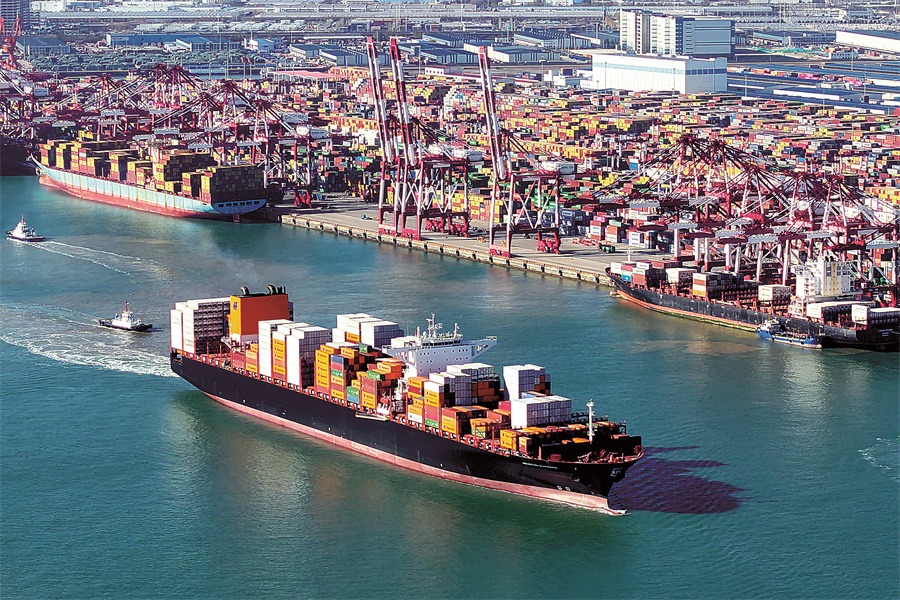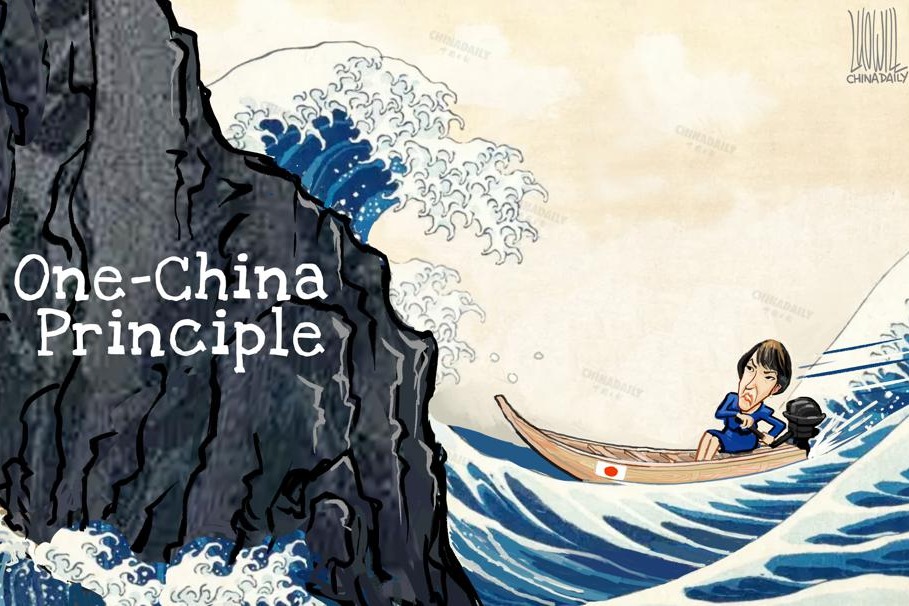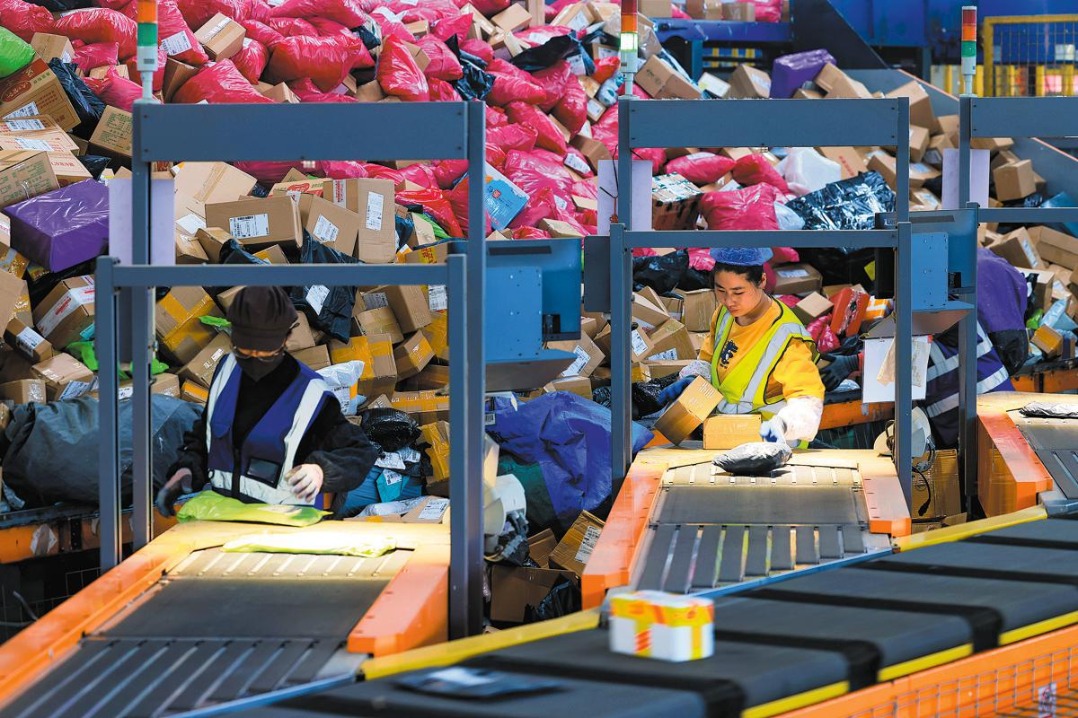Scholars share views on tourism recovery


Editor's note: The orderly and rapid recovery of China's outbound group travels shows the vitality and potential of China's economy, which will help revitalize the global tourism market and boost consumption in tourist destinations and overall economic growth prospects. Four experts share their views on the issue with China Daily.
Chinese people reviving global tourism
By Jiang Yiyi and Gao Ziyi
The United Nations World Tourism Organization released the 2023 World Tourism Barometer report recently, which said that despite the many economic, public health and geopolitical challenges, the global tourism industry will see a strong recovery this year. The international tourist arrivals worldwide may recover to 80-95 percent of the pre-pandemic level, depending on the global economic recovery, growth of tourism in the Asia-Pacific region, the Russia-Ukraine conflict and other factors.
That China saw a travel peak during the May Day holiday, with about 274 million domestic trips and a boom in outbound travel, shows that the country will play a key role in the recovery of the global tourism industry. The estimated figure for domestic travel represents an increase of more than 120 percent year-on-year and is close to the 2019 level.
A report by Tuniu, a Chinese travel portal, said that foreign destinations including Thailand, New Zealand and the Maldives remain popular choices for Chinese travelers, adding that some destinations in Africa and Europe, such as Egypt and France, also saw increased visits with improved airline capacities thanks to China's optimized COVID-19 management policy.
The report also said that the lifting of COVID-19-related travel restrictions in China, the world's largest outbound market in 2019, is a significant step and will help the tourism sector's recovery in the Asia-Pacific region and beyond.
In the short term, the resumption of outbound tourism is particularly beneficial for the recovery of the tourism sector in Asia. In 2019, the number of Chinese tourists visiting Thailand was about 10.98 million, accounting for 7.1 percent of the total outbound tourists for the year and 30 percent of the total number of international tourists visiting Thailand.
Within a month of the lifting of pandemic-related restrictions, the number of Chinese tourists visiting Thailand showed an explosive growth. The increase in the number of Chinese tourists applying for visa on arrival in Thailand was three-fold year-on-year and those buying Thai products tenfold year-on-year. Multiple departments, including the Thai Ministry of Public Health, Tourism and Sports, have said that Chinese tourists are gradually returning to Thailand.
China has been the world's largest outbound tourism market for several years. In 2019, the number of outbound Chinese tourists was 169 million, who accounted for nearly one-fifth of the total global tourism expenditure. Take Kenya for example. A country with excellent nature reserves rich in wildlife, Kenya saw a significant increase in the number of Chinese tourists before the pandemic. In 2019, about 80,000 Chinese tourists visited Kenya, making China the fourth-largest source of tourists for the country. Several Kenyan tourism department officials have said that the resumption of China's outbound tourism will inject new vitality into the global tourism industry and help boost Kenya's tourism sector.
No wonder Kenya has been trying to further tap into the vast Chinese market by offering customized services and innovative products to attract more Chinese tourists.
The resumption of outbound group tours from China will not only help the recovery of and revitalize the overall tourism industry but also further expand the business of travel agencies. Outbound tourism is critical to the health of travel agencies and online tour companies. But when resuming outbound tourism services, travel agencies should assess the market situation and upgrade their services and be prepared to meet the personalized demands of tourists.
Also, tour operators and travel agencies should realize outbound tourism will not recover overnight, and the speed of recovery depends on a variety of factors including flight capacity, visa policies, the pandemic situation in destination countries and consumer willingness.
First, for outbound tourism destinations, the authorities have allowed travel to some countries to assess the reality of the situation, but there are still some drawbacks in terms of tourist visa policies that need further adjustment.
Second, in terms of transportation, the recovery of the aviation sector is subject to multiple factors such as market demand, capacity allocation and flight routes, which require time.
Third, the recovery of the global supply chains, too, will take time. For example, during the three years of the pandemic, a large number of hotel and travel agency workers left the profession so many businesses need fresh talents, which again is a time-consuming process.
Also, the demands of Chinese tourists are changing. Nowadays, tourists are more willing to explore new destinations, prefer customized and independent travel or boutique group tours, and pay more attention to hygiene and the quality of tourism-related products.
In order to seize the opportunities offered by the tourism industry's recovery, enterprises need to adapt to the changes, upgrade the travel products, innovatively develop overseas tourism services and products, and provide customized, high-quality services for tourists.
And travel agencies should keep track of the policies related to travel to overseas destinations and epidemic prevention and control, provide security guarantee for tourists traveling overseas, and create an environment for safe travel.
Jiang Yiyi is the deputy head of the School of Leisure Sports and Tourism at Beijing Sport University.
Gao Ziyi is a postgraduate student at the same university.
Tourists pave way for Macao's economic recovery
By Zhang Mengchen
The May Day holiday gave a much-needed shot in the arm of the tourism industry after China adjusted its pandemic prevention and control policy early this year.
Macao's tourism industry welcomed the adjustment, because tourism will play a big role in not only revitalizing Macao's tourism industry but also boosting its overall economy. The move could help accelerate the Macao Special Administrative Region's economic recovery by helping boost its tourism and hospitality sectors.
Macao is known for its luxury casinos and historical landmarks, and has been able to bounce back due to a combination of favorable conditions and effective government measures.
Before the COVID-19 pandemic, Macao was a thriving tourism hub, attracting millions of visitors from all over the world every year. However, the pandemic brought a sudden halt to tourism, with potential tourists canceling their plans and governments, both at home and abroad, implementing many travel restrictions.
As a result, Macao's tourism industry took a big hit, with visitors' numbers dropping dramatically. In 2019, the number of visitors to Macao reached a record high of nearly 40 million, and the growth of the tourism industry drove the development of related sectors such as hotels, restaurants, retail sales and transportation, creating a large number of jobs for Macao residents in the process.
The three years of the pandemic were difficult times for Macao's tourism industry, but the resumption of travel between the Chinese mainland and Hong Kong and Macao has accelerated the tourism industry's recovery. In fact, Macao's streets are beginning to bustle again with tourists.
The Macao SAR government effectively controlled the spread of the novel coronavirus because it took early and strict measures such as closing the border and conducting widespread testing. This helped restore public confidence in the efficiency of the SAR government, and as a result, tourists have started to return to the city.
In addition to its strong public health response, Macao has also implemented several measures to support its tourism industry, including offering incentives to travel agencies and tour operators, and promoting Macao as a safe and attractive tourist destination. The SAR government has also been working closely with the casino industry to ensure the safe reopening of its world-class resorts, which have been a major draw for visitors.
The results of these efforts are already evident. According to the Macao tourism authorities, visitors' number has been increasing steadily, with the SAR welcoming about 5 million tourists in the first three months of this year, a significant increase over the same period in the previous year.
However, the future of Macao's tourism industry is not solely dependent on the lifting of travel restrictions. The government and the private sector have to work together to diversify the tourism industry and develop new attractions to draw a wider range of tourists. Also, enhancing the overall tourism experience and improving the quality of tourist services will help establish Macao as a top-tier tourist destination.
One key area of potential growth for Macao's tourism industry is the "MICE" (meetings, incentives, conferences and exhibitions) sector. The city has world-class conference and exhibition facilities, as well as a wealth of hotel and dining options, making it a prime destination for international business events. By capitalizing on this potential and investing in the MICE sector, Macao can attract a high-spending segment of tourists, and create a new source of revenue for the local economy.
Another avenue for growth is the development of new attractions, such as cultural and entertainment venues, as well as new theme parks and entertainment centers. This will not only attract new visitors but also encourage people to make repeat visits, helping sustain the growth of the tourism industry in the long term.
In conclusion, Macao's tourism industry faces significant challenges due to the lingering impacts of the pandemic, but it appears to be making a strong recovery. The SAR has been able to effectively control the spread of the virus, and has implemented measures to support its tourism industry, which is now seeing increased tourist footfalls. This is a positive sign for Macao's tourism industry, and it is likely to remain a popular destination for travelers in the coming years.
Despite the lingering impacts of the pandemic on Macao's tourism industry, however, the future of the region's tourism industry is promising. By leveraging new opportunities and working with the private sector to enhance the overall tourism experience, Macao can continue to be a thriving destination for tourists from around the world.
The author is an assistant professor at the School of Liberal Arts, Macau University of Science and Technology.
The views don't necessarily represent those of China Daily.


































